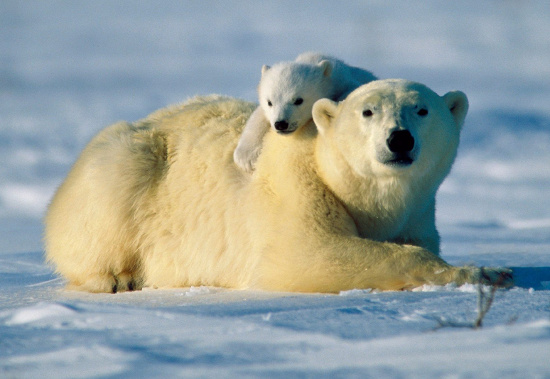Russia and America's efforts to protect white bears failed
Although the United States and Russia have called on countries to strengthen protection of polar bears, the proposal to ban the purchase and sale of bears is not approved during the CITES conference in Thailand.
The export of white bear's skin, teeth and nails from Canada is a hotly debated topic at the March 7 meeting in the framework of the Convention on International Trade in Endangered Species (CITES). in Bangkok city, Guardian reported.
With the support of Russia, the US delegation argues that, although climate change and ice melting in the Arctic are the biggest threat to more than 20,000 white bears around the world, hunting is also a concern. scary graphics for their survival.

Canada is the only country that allows people to export leather,
feathers and products from polar bears. (Photo: National Geographic)
'Scientists paint a dark future for polar bears. A ban on the export of white bear products will give them a better chance of survival in nature until humanity can solve climate change, ' said the US leader in a speech to 178 delegates. water in CITES conference.
But Canada, where two-thirds of the white bears in the world live and is the only country that allows the export of white bear products, insists that the scientific community does not have enough evidence to prove that the number of polar bears is falling sharply. The Canadian delegation stated that their government has applied strict rules to ensure that bear hunting will help them maintain their numbers in a sustainable manner.
38 countries supported Russian and American proposals, 42 countries resisted and 46 countries abstained. Delegates from some countries do not vote.
About 600 polar bears are killed every year in Canada. They died by hunting by the Aboriginal Aborigines and foreign hunters. The skin and body parts of about half of those bears are exported.
- Russia: life is disturbed by the warm winter
- Traumatic image: Koala Bear mother protects me from forest fires
- Sacrifice mother bear
- White bears slaughter each other
- Interesting facts about little-known bears
- Russia spoiled the satellite again
- Goose eggs can save white bears
- Job to find white bears in Norway
- Polar bears and 5 dangerous points
- Increased risk of white bears attacking people
- 5 interesting features of the polar bear
- Russia failed to bring 2 satellites into orbit
 Animal 'suffering' after hibernation
Animal 'suffering' after hibernation Why do goats climb well?
Why do goats climb well? Scientists were surprised to see chimpanzees eating turtles
Scientists were surprised to see chimpanzees eating turtles Giant catfish died deadly due to drought in Thailand
Giant catfish died deadly due to drought in Thailand